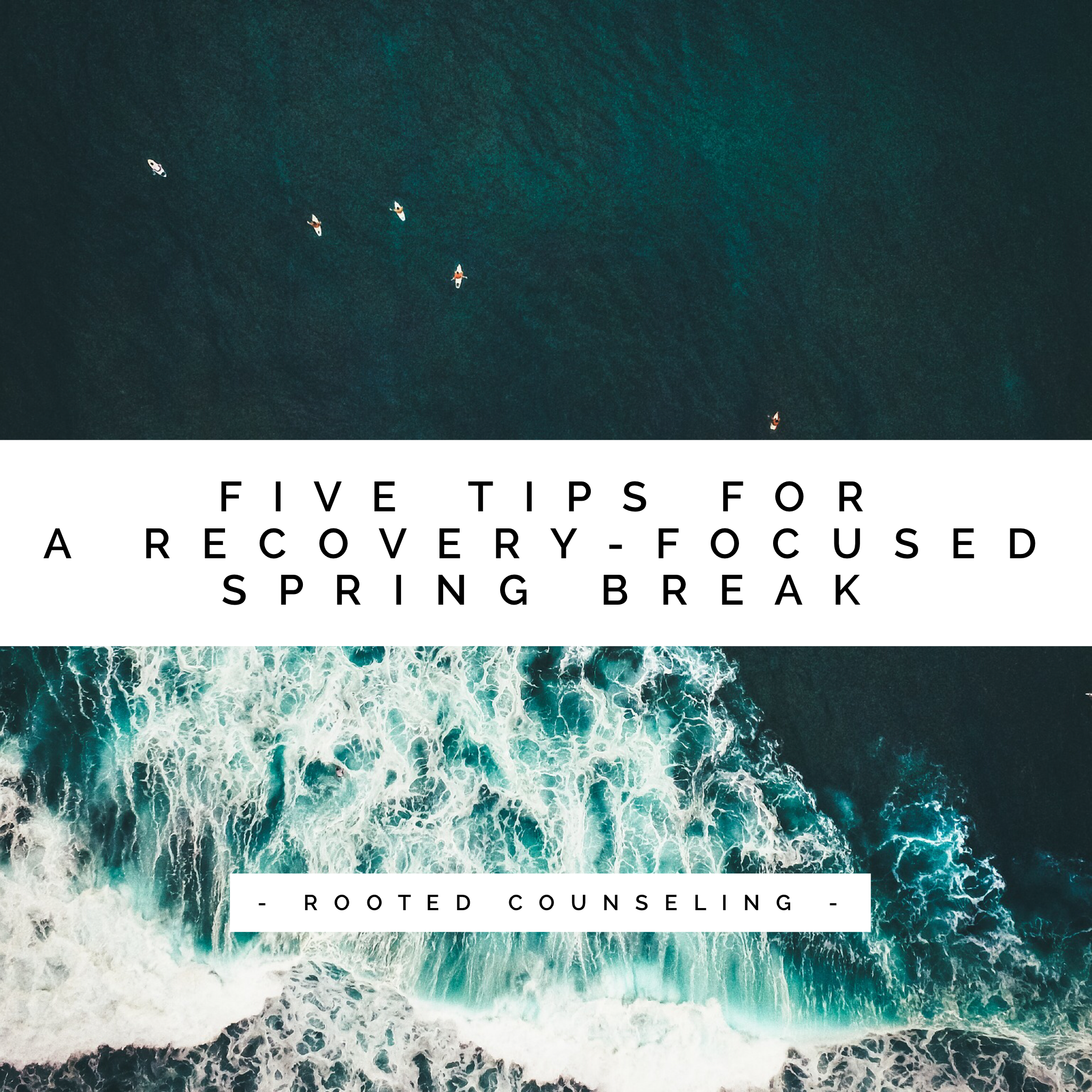Five Tips For a Recovery-Focused Spring Break
For many students, spring break is generally meant to be a time of relaxation - vacationing with no homework, no late nights studying, and no responsibilities. But for those who are struggling with an eating disorder, this is often not the case. Thoughts of spring break bring intense anxiety; instead of a vacation it can feel more like going into a battle where your mind and body fight for control. So how do you survive spring break stress? Here are Rooted Counseling’s top five tips for surviving spring break without losing sight of your recovery goals.
Have fun
If you struggle with an eating disorder, you know that it is a lot of work (if you are reading this because you care about someone with an eating disorder, know that the eating disorder takes a lot of energy out of them). Try to focus on doing activities that you enjoy with the least amount of stress. Maybe you’ve been struggling for so long you can’t remember what you used to enjoy, and that’s okay too. Ask supportive family or friends what they remember you enjoying before the eating disorder. Or practice some flexibility and try something brand new. Give yourself permission to have fun and enjoy being in that moment, not focusing on the future and what needs to be done. Be careful not to stack on more pressure to relax! Be curious instead of rigid.
Plan Ahead
Being away from your normal schedule can making eating more challenging, and the eating disorder loves to jump on any excuse to rationalize missing a meal. Plan ahead for the situations where you may be triggered or be tempted to make excuses. This could include making an eating schedule or working with a dietitian to make sure you are getting all the nutrients your body needs. Try to cover ‘who, what, when, and where’ when planning for meals.
Seek Support
On vacation, you may not have regular access to your counselor or an eating disorder support group, but that doesn’t mean you can’t have support. If you are traveling with friends or family, ask someone you trust to check in on you. The extra level of accountability can help you fight any eating disorder urges that come up and can make the difference between a recovery-focused break or a relapse. Reach out to your counselor to schedule a check-in if you think you might need even more support.
Be an Observer
When it feels like everyone around you is focused on (and constantly talking about) crash diets and last-ditch efforts to change their bodies, remind yourself this moment won’t last forever. Once spring break is over, the workout craze will end, and schedules will go back to normal. Observe this activity as though you were outside of it to keep some much-needed perspective. How would an artist depict the scene, or an author write about it once it was over? Where do you want to have spent your energy when you look back on how your spring break went? Stepping outside of the ‘spring break body’ obsession can help you connect with your long-term goals and keep your focus where it matters.
Your Needs Matter
Above all else, remind yourself that you, and what you need, matters. Don’t believe the lie that asking for what you need is needy, selfish, or self-centered. Oftentimes, the very thing that we need is to speak up for ourselves and say, “Hey, I’m not interested in this, so I’m going to pass today.” That is not selfish or wrong, it is honoring what you need, and is one of the most important skills to master in recovery. It is okay and necessary to plan ahead for alone time, or for those times when you probably shouldn’t be alone. Clue your friends and family in to when these times might be to reduce the chance of conflict in the moment.
While these are only some of the ways to help you stay in recovery over spring break, this can be a great place to start. Remember to honor your needs, stay flexible, and never hesitate to reach out for support.
- Damaris Garcia
